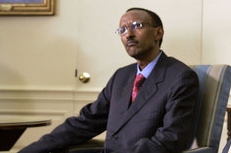Press Release
Ten years on global poverty reduction strategies failing poorest people – new report
4 August 2010
More than 10 years on, global poverty reduction strategies introduced by multilateral organisations including the World Bank and International Monetary Fund (IMF), have failed to remove many of the poorest communities, especially minority and indigenous communities, out of poverty, Minority Rights Group International says.
Poverty Reduction Strategy Papers (PRSPs) were initiated in 1999 by the IMF and World Bank to help low income and highly indebted countries to reduce their poverty levels. At the time, the move was widely supported by the UN and big donor countries. Currently, about 140 countries around the world are at some stage of a PRSP process, including implementing development projects based on the papers.
Now a new briefing by MRG, which looks at the progress of PRSPs in countries across Africa, Asia and Latin America, says millions of dollars, directed via governments and civil society, have been spent on development programmes as part of the PRSPs that are having no real impact on the ground.
The briefing says states compiling the papers have failed to take account of the unique situation facing minorities, such as geographical remoteness, language barriers and lack of knowledge and information about national government processes. The lack of resources has also hindered communities’ meaningful participation in the process.
“Processes such as these can only begin to have results for minority and indigenous communities if they take account of linguistic and cultural differences, gender inequalities and the impact of direct and indirect discrimination,” says Mark Lattimer, MRG’s Executive Director.
The report is based on global research as well as first hand consultations with communities and civil society actors in Kenya and Uganda, with a focus on pastoralist communities in the region. The case studies argue that PRSPs are failing to deliver on the basic promises made by governments and the international community to poor people.
For instance, the Karamoja region in north eastern Uganda, an area mainly populated by minority pastoralist groups, is comparatively lacking basic social services and has endured marginalisation from the political, social and economic mainstream of Uganda despite a long-standing poverty reduction plan in the country.
Similarly in Kenya, pastoralist communities, including the Endorois, who have been removed from their ancestral lands by successive governments, remain impoverished, with elevated levels of illiteracy, high HIV prevalence, poor health, and high maternal and child mortality rates.
“The lack of a comprehensive analysis within PRSPs of the status of minority and indigenous women, who face multiple levels of discrimination and marginalisation, as well as the failure to disaggregate data on the basis of ethnicity and religion means that the real situation of these vulnerable groups is hidden within the overall poverty analysis of the majority population,” says Samia Khan, author of the briefing.
MRG through its research has recognised the need to improve national poverty consultation processes to include models that are rights-based, pro-poor and engage all marginalised groups in meaningful participation in decisions that affect them.
Notes to Editor –
- ‘Poverty Reduction Strategy Papers: failing minorities and indigenous peoples’ will be launched on 4 August 2010. The briefing will be available on MRG’s website www.minorityrights.org
-
- Interviews can be arranged with the following:
o Mark Lattimer, MRG’s Executive Director
T: +442074224200 begin_of_the_skype_highlighting +442074224200 end_of_the_skype_highlighting
o Samia Khan, Author of the briefing.
M: +44(0)7956431276 begin_of_the_skype_highlighting +44(0)7956431276 end_of_the_skype_highlighting
- Minority Rights Group International (MRG) is a non-governmental organisation working to secure the rights of ethnic, religious and linguistic minorities and indigenous peoples worldwide. Visit our website on:www.minorityrights.org
For further information or to arrange interview please contact MRG’s press office in London +442074224205 begin_of_the_skype_highlighting +442074224205 end_of_the_skype_highlighting or +447870596863 begin_of_the_skype_highlighting +447870596863 end_of_the_skype_highlighting or in Kampala on +256 312266832 begin_of_the_skype_highlighting +256 312266832 end_of_the_skype_highlighting (Office) +256 782748189 begin_of_the_skype_highlighting +256 782748189 end_of_the_skype_highlighting (Cell).Mohamed Matovu
Africa Regional Information officer
Minority Rights Group International
+256 312266832 begin_of_the_skype_highlighting +256 312266832 end_of_the_skype_highlighting (Office)
+256 782748189 begin_of_the_skype_highlighting +256 782748189 end_of_the_skype_highlighting (Cell)


















